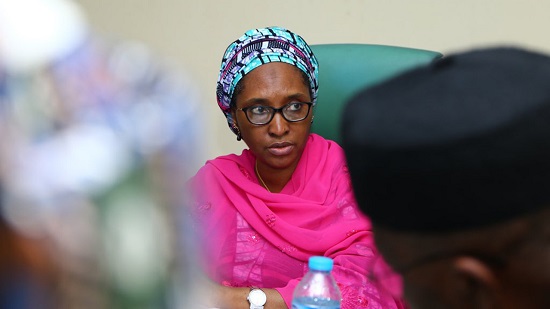This post has already been read 1446 times!
The Federal Government recorded a revenue shortfall of N15tn from 2015 to 2020, official data obtained by our correspondent have shown.
The revenue shortfall led to a funding gap of N3.75tn in the implementation of capital projects of Ministries, Departments and Agencies, according to an analysis of the budgetary provisions and budget implementation reports from the Budget Office of the Federation.
According to the documents, the total revenue projection for the six-year period was N31.9tn, while about N16.9tn was generated, resulting in a shortfall of N15tn.
The total revenue allocated for capital projects in the period under review was N11.9tn, while the actual amount released to the MDAs was estimated at N8.2tn.
The data showed that in the 2015 fiscal year, the Federal Government approved the sum of N557bn for capital projects, out of which N387bn was actually released, resulting in a funding gap of N169.6bn.
From the N1.58tn budgeted for capital projects in 2016, the sum of N1.21tn was released, creating a deficit of N368bn.
For 2017, N1.56tn was released for the execution of capital projects, out of the budgeted amount of N2.17tn. This resulted in a funding shortfall of N611.35bn.
Further analysis of the data revealed that in 2019, a funding gap of N863.9bn for the execution of capital projects was recorded.
In the 2019 annual budget, the total amount of N2.03tn was allocated for capital expenditure, out of which N1.16tn was released.
An analysis of the revised budget for the 2020 fiscal year showed that N2.6tn was projected to be spent on capital projects, but N1.94tn was released. This resulted in a funding gap of N733bn.
Economists told our correspondent that the annual revenue shortfalls could be largely attributed to the disproportionate reliance of the Nigerian economy on crude oil.
They advised the Federal Government to focus on expanding its revenue sources in order to generate adequate revenue to finance capital projects for the benefit of the country’s economy.
They explained that the revenue projections contained in the annual budgets were largely based on crude oil prices.
“And as much as possible, the executive and the legislature should work together to create a benchmark price for oil that is realistic; it shouldn’t be set arbitrarily. In other words, they should be more realistic in projecting oil price to mitigate the volatility on that side.
“By expanding our revenue base this will enable us fund capital projects that are critical to a developing economy like ours.”
Another expert and the Chairman Chartered Institute of Bankers of Nigeria, Prof. Uche Uwaleke, lamented that whenever the government recorded a revenue shortfall, the capital component of the budget suffered while the recurrent expenditure was prioritised.
He said, “Prioritising capital projects will create job opportunities, reduce unemployment, reduce inflation via increased output, enhance ease of doing business and foreign investments, and strengthen the naira value.
“In short, doing so will facilitate economic growth and development generally.”



